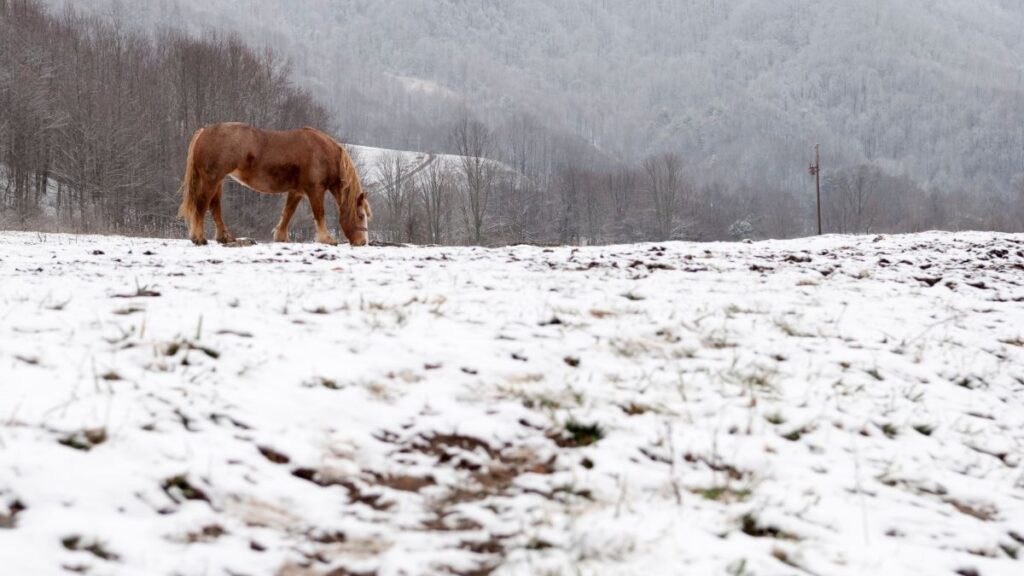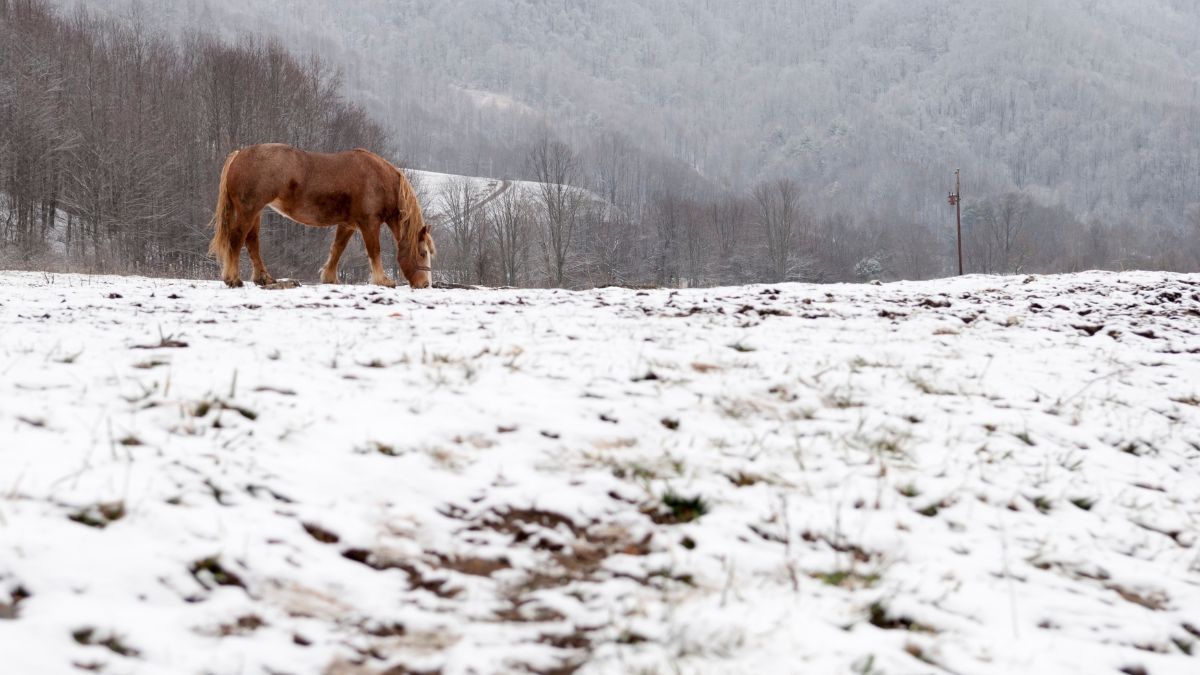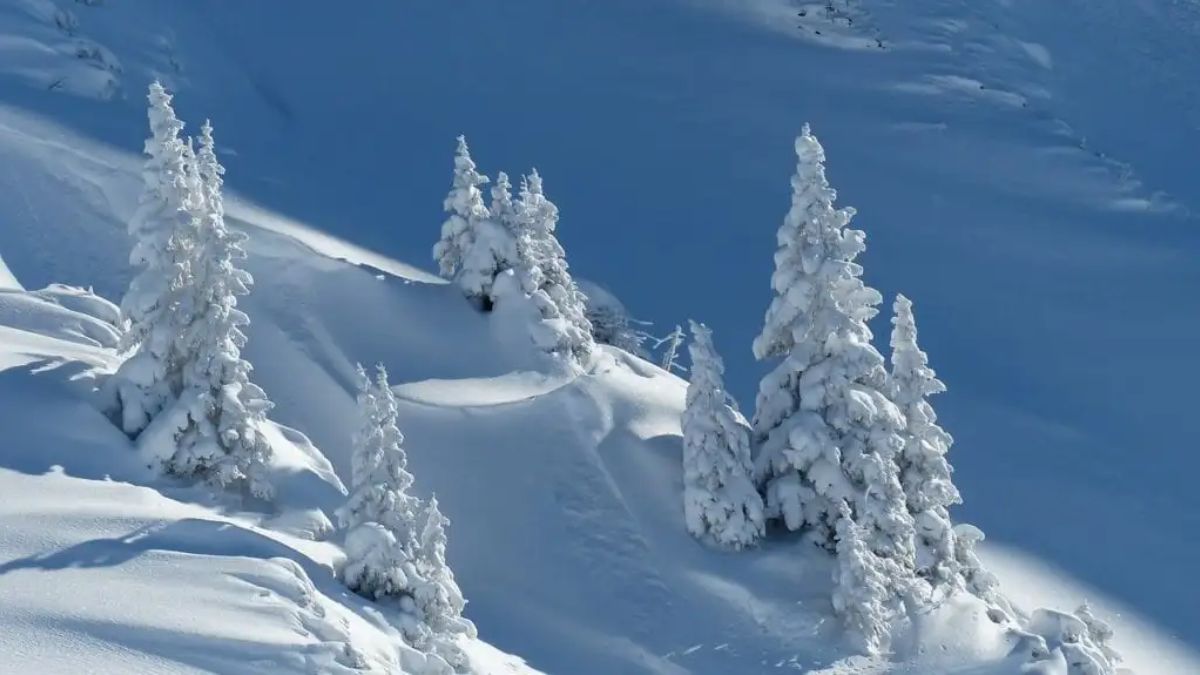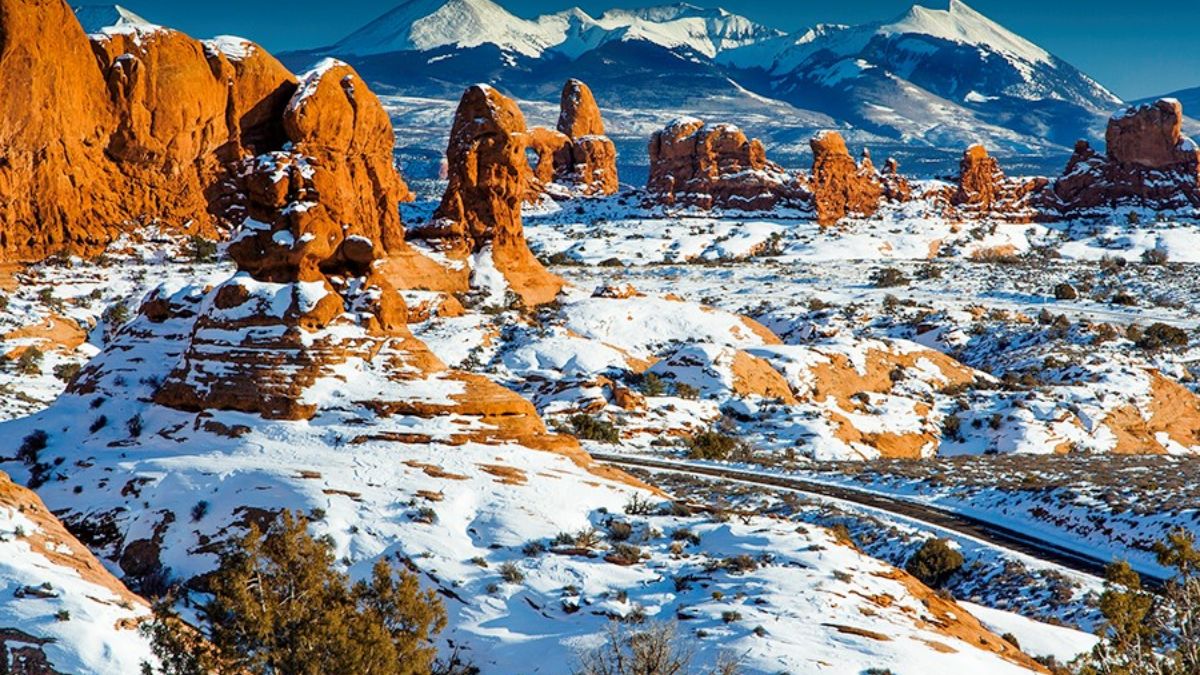Yes, it does snow in Tennessee. Although the frequency and amount of snowfall can vary depending on the region within the state. East Tennessee, particularly the higher elevations of the Great Smoky Mountains, is more likely to experience snowfall compared to Middle and West Tennessee.
It is important to note that the amount and frequency of snowfall can vary from year to year. Some winters may see several significant snowfalls, while others may have very little or no snow at all.
While snowfall in Tennessee is not as common as in some other parts of the United States, it does occur in certain regions, particularly in higher elevations.

In this article, we will explore the climate patterns of Tennessee and discover whether snowfall is a common occurrence in the state. Let’s find out when does it snow in Tennessee.
Location Overview
Tennessee is located in the southeast of the United States. This state is known for its diverse landscapes, including the Great Smoky Mountains and the Mississippi River. With its mild climate and relatively temperate winters, many people wonder whether it snows in Tennessee.
Tennessee can be divided into three main regions: the East, Middle, and West. Each region has its own unique climate patterns and snowfall occurrences.
- East Tennessee
East Tennessee, home to the Great Smoky Mountains, tends to have the highest likelihood of snowfall in the state. Cities such as Gatlinburg and Pigeon Forge often see snowfall, especially at higher altitudes.
The higher elevations of the Smokies experience colder temperatures, making snowfall more common, particularly during winter.
- Middle Tennessee
Middle Tennessee, which includes cities like Nashville and Murfreesboro, experiences a milder climate compared to East Tennessee. While snowfall is not as common as in the eastern part of the state, it is not unheard of.
Typically, Middle Tennessee receives a few snowfalls each winter, though they are often light and do not accumulate significantly.
- West Tennessee
West Tennessee, including cities like Memphis and Jackson, has the mildest climate in the state. Snowfall is relatively rare in this region, and when it does occur, it is usually in the form of light flurries that quickly melt away.
Geography and Climate of Tennessee
To understand whether snowfall is common in Tennessee, it is important to examine the state’s overall climate and geography.
Tennessee experiences a humid subtropical climate characterized by hot, humid summers and generally mild winters. However, the climate can vary significantly depending on the region within the state.
Snowfall in Tennessee holds geographical significance in terms of natural beauty, winter tourism, recreational activities, economic impact, agricultural benefits, cultural traditions, and educational opportunities.
The snow-capped landscapes, particularly in the Great Smoky Mountains, attract tourists and support winter tourism activities. Snowfall provides opportunities for outdoor activities such as skiing and snowboarding.
Increased tourism stimulates the local economy, but heavy snowfall can also disrupt businesses. Snowfall replenishes soil moisture levels, benefiting agriculture. It offers educational opportunities for studying weather patterns and scientific research.
Historical Snowfall Record
Over the years, Tennessee has experienced notable snowfall events that have impacted the state.
One such event occurred in January 2016 when a winter storm dubbed “Winter Storm Jonas” brought heavy snowfall and significant disruptions to many parts of the state, particularly in Middle Tennessee. The storm resulted in school closures, transportation issues, and power outages.
Winter Season & Snowfall Pattern
Snowfall in Tennessee is more likely to occur during winter, particularly from December to February. While it is challenging to attribute individual weather events solely to climate change, scientists suggest that overall warming trends can affect the frequency and intensity of snowfall.
The average winter temperatures can vary across the different regions of Tennessee. Here’s a general overview of the average temperatures in winter for each region:
- East Tennessee
In East Tennessee, the average winter temperatures range from around 30 to 50 Fahrenheit. However, it is important to note that higher elevations can experience much colder temperatures, especially at night, with temperatures dropping below freezing.
- Middle Tennessee
Middle Tennessee has milder winter temperatures compared to East Tennessee. The average winter temperatures in this region typically range from around 35 to 55 Fahrenheit. However, as with any region, there can be fluctuations and occasional colder spells.
- West Tennessee
West Tennessee experiences the mildest winter temperatures in the state. The average winter temperatures in this region range from around 40 to 60 Fahrenheit. Temperatures here are generally milder than in other regions, with less likelihood of freezing temperatures during the day.
Factors Influencing Snowfall
There are several factors influencing snowfall in Tennessee. These may include latitude and elevation, air masses and storm systems, proximity to bodies of water, weather patterns, climate change, El Niño and La Niña events, and local geography.
These factors determine the likelihood and intensity of snowfall in different regions of the state. It is important for residents to stay informed about weather conditions and take necessary precautions during periods of snowfall.
Locations to Enjoy Snow
Tennessee offers several locations where you can enjoy snowfall and winter activities. Here are some notable places:
- Great Smoky Mountains National Park
Located in East Tennessee, the Great Smoky Mountains offer picturesque landscapes and ample opportunities for winter recreation. You can enjoy snow-covered trails, go skiing or snowboarding at Ober Gatlinburg, or take part in snowshoeing and cross-country skiing.
- Gatlinburg and Pigeon Forge
These popular tourist destinations in East Tennessee are surrounded by the Great Smoky Mountains. During the winter months, they offer winter-themed attractions, holiday lights displays, and opportunities for snow-based activities.
- Ober Gatlinburg
Ober Gatlinburg is a ski resort and amusement park located in the mountains above Gatlinburg. It offers skiing, snowboarding, snow tubing, and ice skating, making it a hub for winter fun.
- Roan Mountain State Park
Situated in Upper East Tennessee, Roan Mountain State Park is known for its stunning views and diverse ecosystems. In winter, you can explore snowy trails, go snowshoeing, and enjoy the scenic beauty of the park.
- Cherokee National Forest
This expansive forest spans across East Tennessee and provides numerous outdoor recreation opportunities. In winter, you can hike snowy trails, go sledging, or simply enjoy the tranquillity of a winter wonderland.
- Big South Fork National River and Recreation Area
This national park in Middle Tennessee offers scenic landscapes, river gorges, and rugged terrain. During winter, you can explore the park on foot, enjoying the snow-covered trails and peaceful surroundings.
- Norris Dam State Park
Situated near Knoxville in East Tennessee, Norris Dam State Park is known for its natural beauty and recreational activities. In winter, you can hike, fish, and enjoy the snowy landscapes.
- Frozen Head State Park
Located in the Cumberland Mountains of East Tennessee, Frozen Head State Park offers winter hiking, wildlife viewing, and birdwatching opportunities. The park’s scenic beauty is especially enchanting when covered in snow.
These locations provide diverse options for enjoying the snow and engaging in winter activities in Tennessee.
Conclusion
While snowfall is not as common in Tennessee as in some other parts of the United States, it does occur in certain regions. East Tennessee is more likely to experience snowfall, while Middle and West Tennessee generally see less snowfall.
When snow does fall, it can have both positive and negative impacts on the state and its residents. Understanding the climate patterns and being prepared for snowfall events is essential for those living in or visiting Tennessee during winter.





